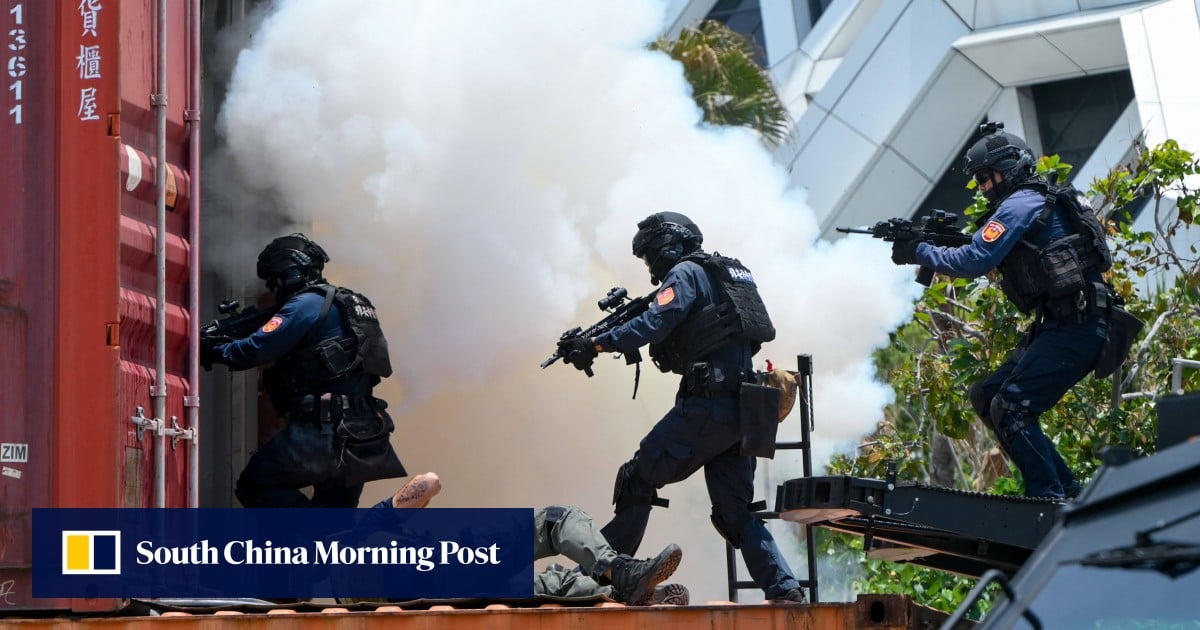The drills, to be held later this year, will focus on 20 critical infrastructure sites, including government agencies, public utilities, transport hubs, hospitals, industrial complexes, and science parks, according to Taiwan’s National Security Bureau.
“The primary emphasis in these drills should be on advancing the integration of the defence ministry’s ‘transition from peacetime to wartime’ scenario,” the bureau said in a report sent for legislative review last week and obtained by the South China Morning Post on Monday.
The report said the integration would be pivotal for evaluating the resilience of facility operations under both standard and evolving conditions.
Taiwan’s Office of Homeland Security, which will oversee the exercises, would also conduct inspections at another 40 critical infrastructure locations this year, the bureau said.
Due to the sites’ sensitive nature, the report did not indicate which facilities or locations would be included in the exercises, and specific dates for the drills and inspections were not disclosed, but the bureau said they would be spread throughout the year.
Critical infrastructure, as detailed in an office handbook, is categorised into eight sectors: energy, water resources, telecommunications, transport, finance, emergency services, government agencies, and industrial zones.
“Given the rapidly evolving situations and technological advancements, security authorities must step up efforts to enhance our homeland security measures,” said Wang Ting-yu, a lawmaker from the ruling Democratic Progressive Party (DPP).
US military officials and experts have issued several warnings about Beijing possibly taking aggression action against Taiwan by 2027.
CIA director William Burns has also expressed concerns about Beijing’s ability to launch an attack on Taiwan by 2027.
Chieh Chung, a senior national security research fellow at Taiwan’s National Policy Foundation, which is affiliated with the main opposition party Kuomintang, said that if Beijing decided to attack Taiwan, it would likely target military installations and critical infrastructure.
“Such a move would not only impair our key facilities and diminish our response capabilities but also spark panic in Taiwan,” he said.







